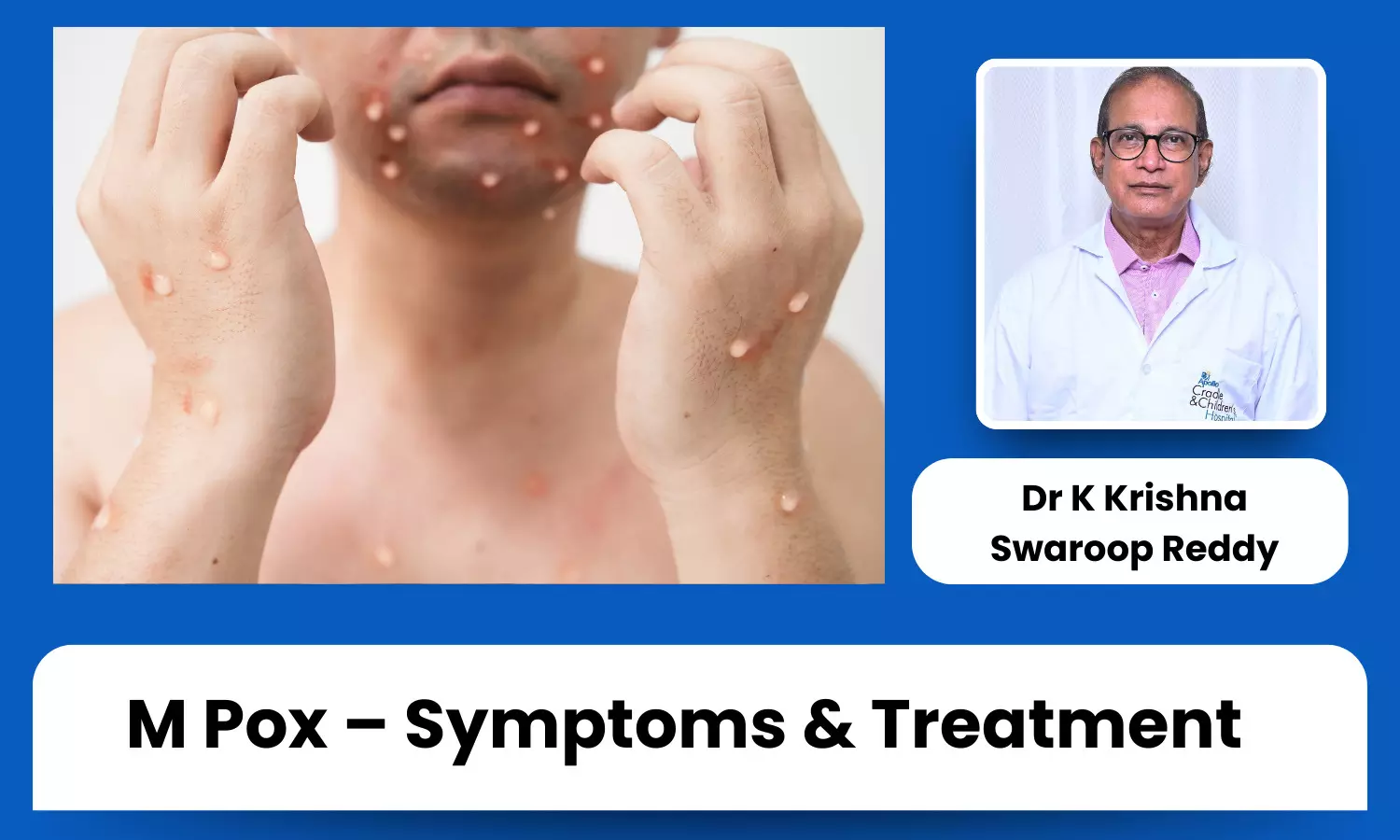M Pox Explained: Key Symptoms, Transmission Methods, and Treatments - Dr K Krishna Swaroop Reddy

M Pox (formerly known as Monkeypox) is a viral disease caused by the monkeypox virus, which belongs to the Orthopoxvirus genus, the same family of viruses that includes the variola virus (which causes smallpox).
Endemic Regions
• Central and West Africa: M Pox is endemic in several countries, including the Democratic Republic of the Congo (DRC), Nigeria, and Cameroon. In these areas, the disease occurs sporadically with occasional outbreaks, particularly in rural or forested regions.
• Democratic Republic of the Congo: The DRC has the highest number of reported M Pox cases globally, with thousands of cases reported annually.
Symptoms of M Pox
• Fever: A sudden onset of fever is common.
• Headache: Often intense.
• Muscle aches (myalgia): General muscle pain.
• Back pain: Another common symptom.
• Swollen lymph nodes (lymphadenopathy): This is one of the key distinguishing features from smallpox.
• Chills and exhaustion: Fatigue and chills are frequently reported.
• Rash:
o Develops 1-3 days after fever starts.
o Often starts on the face before spreading to other parts of the body, including the palms, soles, and mucous membranes.
o Progresses through different stages: macules, papules, vesicles, pustules, and scabs.
o The rash is usually painful before it scabs over.
Mode of Transmission
• Direct contact: With the blood, bodily fluids, or cutaneous/mucosal lesions of infected animals or humans.
• Animal-to-human transmission: Occurs through bites or scratches from infected animals, or through direct contact with their fluids or lesions.
• Human-to-human transmission:
o Close contact with respiratory secretions, skin lesions of an infected person, or recently contaminated objects.
o Droplet respiratory particles during prolonged face-to-face contact.
• Contaminated materials: Touching objects like bedding or clothing used by an infected person.
Diagnosis
• Clinical evaluation: Based on symptoms, especially the characteristic rash and history of potential exposure.
• Laboratory tests:
o Polymerase chain reaction (PCR) testing of samples from skin lesions.
o Blood tests for virus identification.
o Serological tests can detect antibodies in some cases.
Treatment
• Supportive care: Treatment is mainly supportive, focusing on relieving symptoms such as fever, pain, and dehydration.
o Hydration: Ensuring adequate fluid intake to prevent dehydration.
o Pain management: Over-the-counter pain relievers may be used to alleviate headaches, muscle pain, and discomfort from the rash.
o Skin care: Topical treatments may be applied to reduce itching and prevent secondary infections.
Monitoring and management of complications
In severe cases, hospitalization may be required for monitoring and treatment of complications such as secondary bacterial infections, pneumonia, or sepsis.
Vaccination post-exposure
Vaccination within four days of exposure may prevent the onset of the disease or reduce its severity.
Prevention
• Vaccination: Smallpox vaccines offer some protection against M Pox. Newer vaccines specifically for monkeypox are also available in some regions.
• Avoid contact: With animals that could harbor the virus, especially in areas where the disease is endemic.
• Isolation of infected individuals: To prevent the spread of the virus.
• Hand hygiene: Frequent hand washing with soap and water or using an alcohol-based sanitizer.
• Use of protective equipment: Healthcare workers should use personal protective equipment (PPE) when caring for infected individuals.
The disease is generally self-limiting, but it can be more severe, especially in children, pregnant women, and individuals with compromised immune systems. Early detection and management are crucial to prevent complications and limit the spread of the virus.


